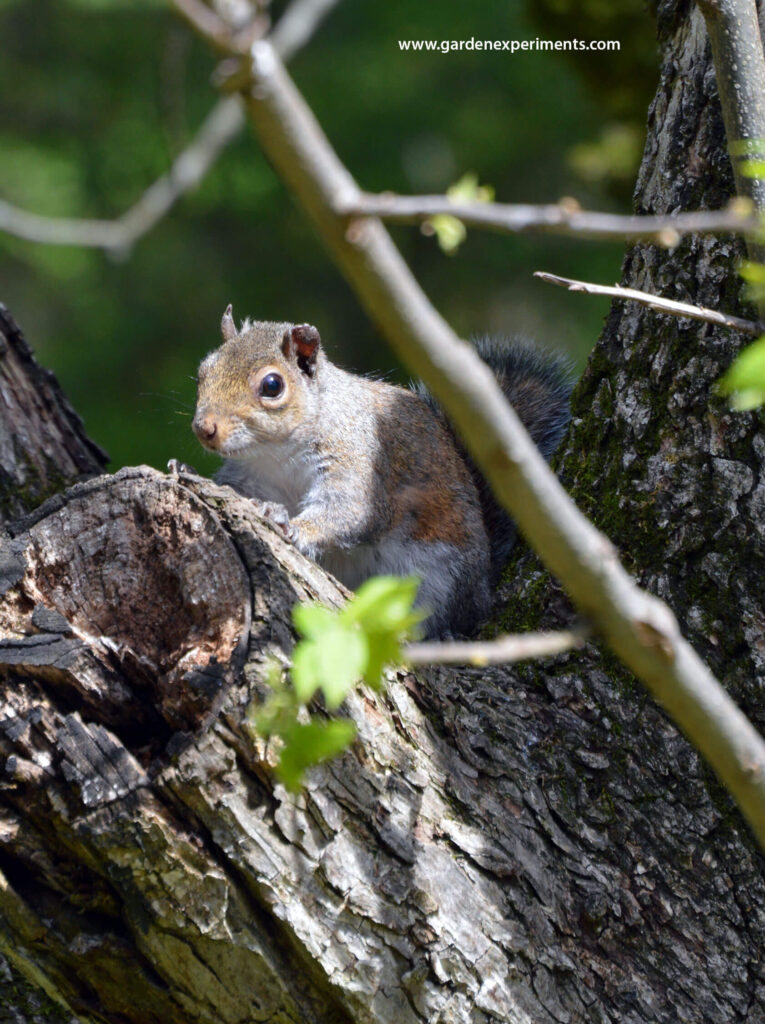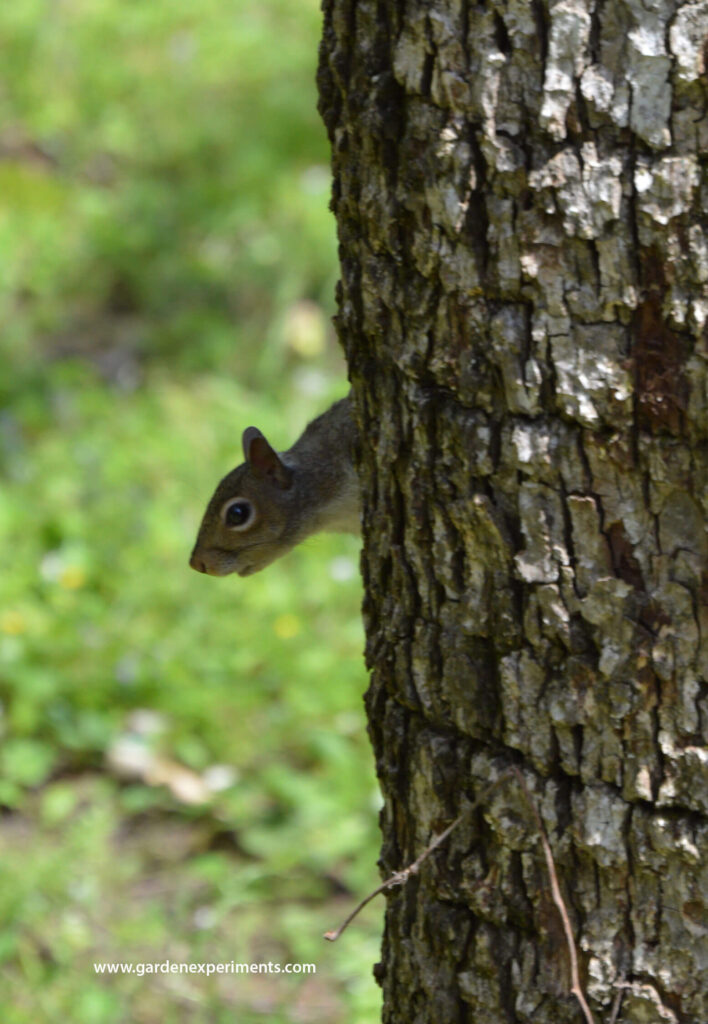As gardeners, we tend to think of squirrels as pests. They dig up freshly planted seeds, dig holes in lawns, drop the scales of pine cones everywhere, and often get to the pecans and green tomatoes before I do!
Despite their sometimes frustrating activities, tree squirrels play an important role in the ecosystem.

As Seed & Spore Dispersers
You’ll see squirrels caching nuts and seeds in various places, usually burying them in the soil or putting them in a hole in a tree. Just like us, squirrels forget where they put things.
The nuts and seeds that they forget about can sprout and become new trees or plants. In this way, squirrels help disperse seeds for future trees.
Squirrels also eat mushrooms – below and aboveground fungi. The spores of these fungi pass through their gut without being harmed and are then dispersed around the forest floor via fecal pellets. Many mushrooms/fungi rely on ingestion by small mammals for dispersal.
As a Food Source
In urban and forested environments, squirrels are an important food source for other mammals, snakes, and birds of prey. I once had a red-tailed hawk catch and eat one right in my backyard.
This may not be the prettiest of reasons that squirrels are beneficial to have around, but without them, we wouldn’t have as much diversity in wildlife.
As Comic Relief
You have to admit it, squirrels can be pretty funny. I often talk back to the ones that are warning me off with their chirps and flipping tails. It amuses me that such a little mammal is telling me to back off.
Squirrel antics at bird feeders are usually pretty fun to watch, too. They’ll try and try to reach the seed no matter what obstacle you put in front of them.
Well, and then there’s this. Squirrels are incredibly clever when it comes to getting a free meal. Watch the video below.

